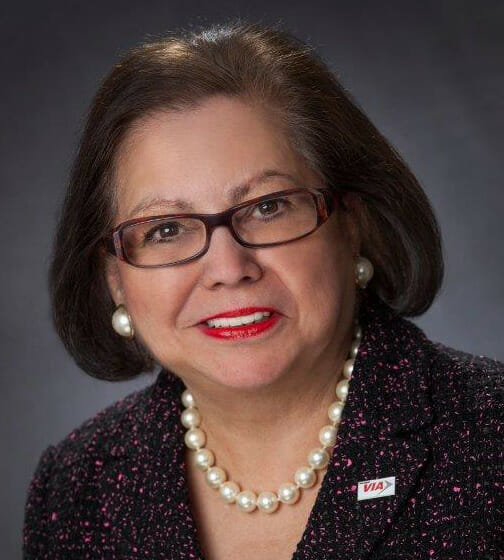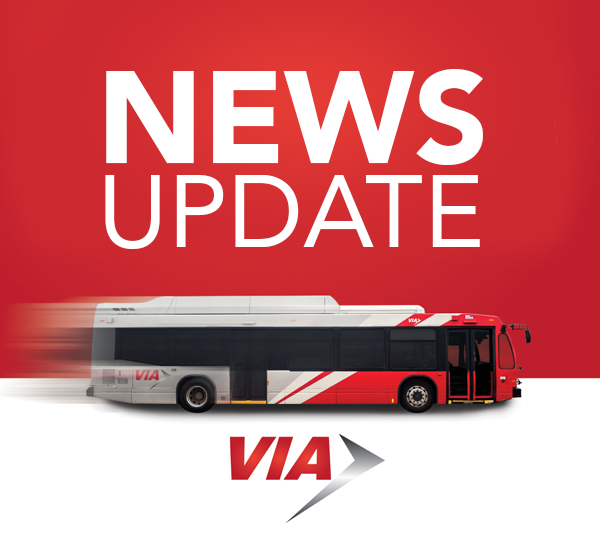Trustees hold out hope for agreement with City on growing need for sustainable funding

VIA Chair Hope Andrade
The VIA Board of Trustees took action Tuesday to create a path toward addressing VIA’s history of underfunding and redesign the regional transit system for a post-COVID-19 future.
Advanced Transportation District Board members, who also serve as the VIA Board, agreed to table the notice to the City of San Antonio and Bexar County of their intent to order a referendum on an additional 1/8th-cent sales tax for transit in November, so that discussions could continue with City and County leaders. A vote on the resolution will be held at a Special Called Board Meeting on July 2, 2020.
This required administrative step allows the Board to call for an election to reallocate a 1/8th-cent share of the existing sales tax. Currently only half of a one cent sales tax, made available by the Texas State Legislature to support transit, is being used in that capacity. The statutory deadline for calling a November ballot item is Aug. 17, 2020.
The Board’s good faith action encourages continued progress in ongoing discussions with the Mayor, County Judge and VIA leadership who are working together toward securing a sustainable funding source to preserve essential service.
“I am proud of the Board’s action. They are passionate about representing the riders and fighting to reverse the historic trend of underfunding transit in a community that relies on VIA as a lifeline,” VIA Board Chair Hope Andrade said. “We are unified in our mission and will continue advocating for our riders until we find a solution that moves us forward, together.”
VIA is the least-funded major transportation agency in the state. The result has been a lack of frequent and reliable service that has been exacerbated in recent months by the social and economic effects of COVID-19.
By securing an additional 1/8th cent of sustainable funding, VIA could begin to address chronic underfunding and help bridge the opportunity gap affecting our most vulnerable populations who lack equitable mobility options.
VIA has outlined a plan for new investments that would be made possible by sustainable funding. They include strengthening service at the core of its service area and innovating with new types of service—like mobility on demand options—in further, less dense areas. The “Keep San Antonio Moving” plan is designed to preserve essential transit service as part of the region’s recovery and will help avoid the most severe service and labor cuts caused by forecasted financial shortfalls.
Board Secretary Ezra Johnson, who voted against the motion to delay the vote, said it was not reflective of his continued respect for the Board Chair or his fellow Trustees, rather out of concern and frustration for delayed action.
“I return to my point about preparing for the future to absorb these systemic shocks than we were able to this time,” he said. Without a sustainable source of funding, “we are not going to be in a position to protect our riders unless we are in a better stronger position than we are now.”
Trustee Kristi Villanueva, who voted for the motion, urged trustees to remember the people VIA serves and recounted times in her life when she was without access to reliable personal transit, she instead relied on VIA.
“I was that little girl, I was that single mother, riding the bus … Public transit helped me,” said Villanueva, who is now President/CEO of the West San Antonio Chamber of Commerce and a small business owner. She asked her fellow trustees to have “a little patience” and allow Chair Andrade and VIA leadership to continue seeking common ground on the issue with City and County leaders.
